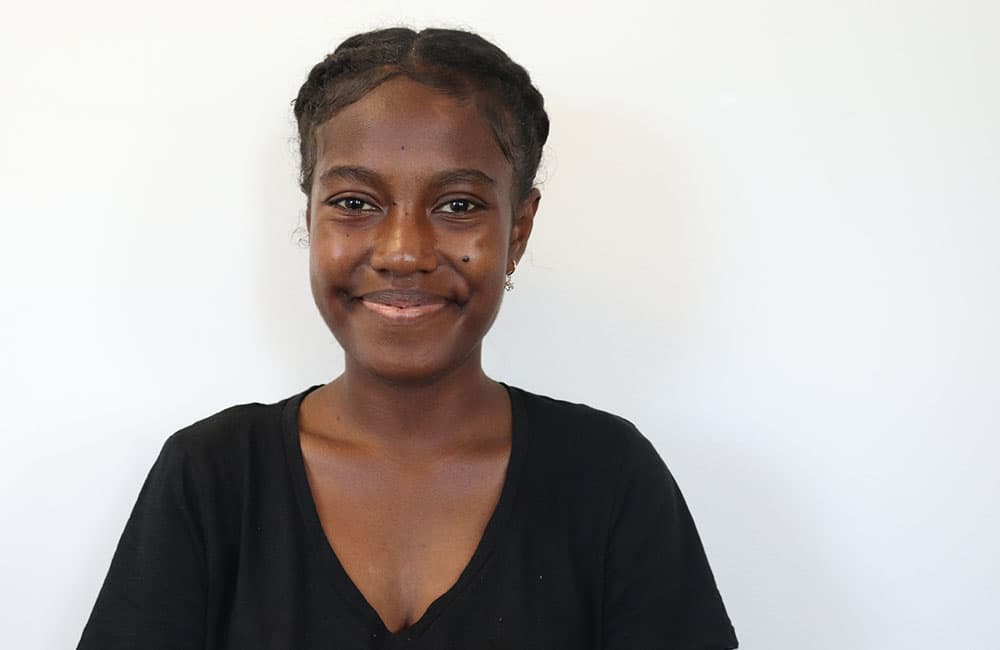
Solange
Photo: Rachel Tarsan, Save the Children Papua New Guinea
Save the Children’s Area Manager for Western Province, Bernadette Yakopa, says “We are facing a misinformation pandemic on top of a COVID one. Most Papua New Guineans get their information from Facebook, and much of it is incorrect… [and] doesn't stay online: it filters down to village and family levels where misinformation is retold as fact, or at the very least, speculation.”
Promoting online safety in the Pacific
Working in partnership with Facebook, the ‘I am Digital’ campaign is part of Save the Children’s response to the growing concern for online safety across the Pacific. The project is led by PNG young people, who work as a team to create messages to make their peers stop scrolling and consider their safety online. Critically, the campaign gives young people the skills they need to identify, filter and address fake news and harmful content.
While more adults in PNG are now using social media, Solange says they may not understand the dangers of it. “My parents didn’t know about Facebook three years ago but now my whole family is online. My parents don’t really educate us on how to use Facebook, they just say ‘do the right thing’ but don’t really know what we’re doing.” She thinks young people have a role to play, explaining, “Young people are more advanced in technology… [and] we have the power to influence a lot of people – the older generation and younger generation - so I think young people should advocate more on fighting COVID and what everyone should do - abide by the protocols.”
Solange says the experience of working with Save the Children has been valuable and she has learnt skills to advocate to her peers about the importance of staying safe on social media, addressing bullying and dealing with fake news. “The workshop was a really great opportunity and opened my mind to see online safety as an important thing… I always thought of social media as a place you go to get information - it broadened my mind about the importance of staying safe online.”
Using radio to stop the spread
As the rate of infections soars across PNG and vaccine hesitancy gains pace, Save the Children is also taking to the airwaves to distribute information about the importance of staying safe, and informed. The organisation is running radio bulletins that clarify how COVID-19 is spread, how to reduce the risk of contracting it, and pandemic parenting tips for caregivers and parents.
Save the Children PNG Country Manager Gerry Dyer says giving people the information they need to protect themselves and their families is critical, explaining “The misinformation is coming from every direction and spreading faster than the virus itself. Radio works well in countering misinformation as people trust the medium and it is accessible to remote communities.”
Young people are keen to step up to help curb the crisis. Solange says, “I think they should get more young people to get involved… When teenagers share things with their parents online, they listen.”